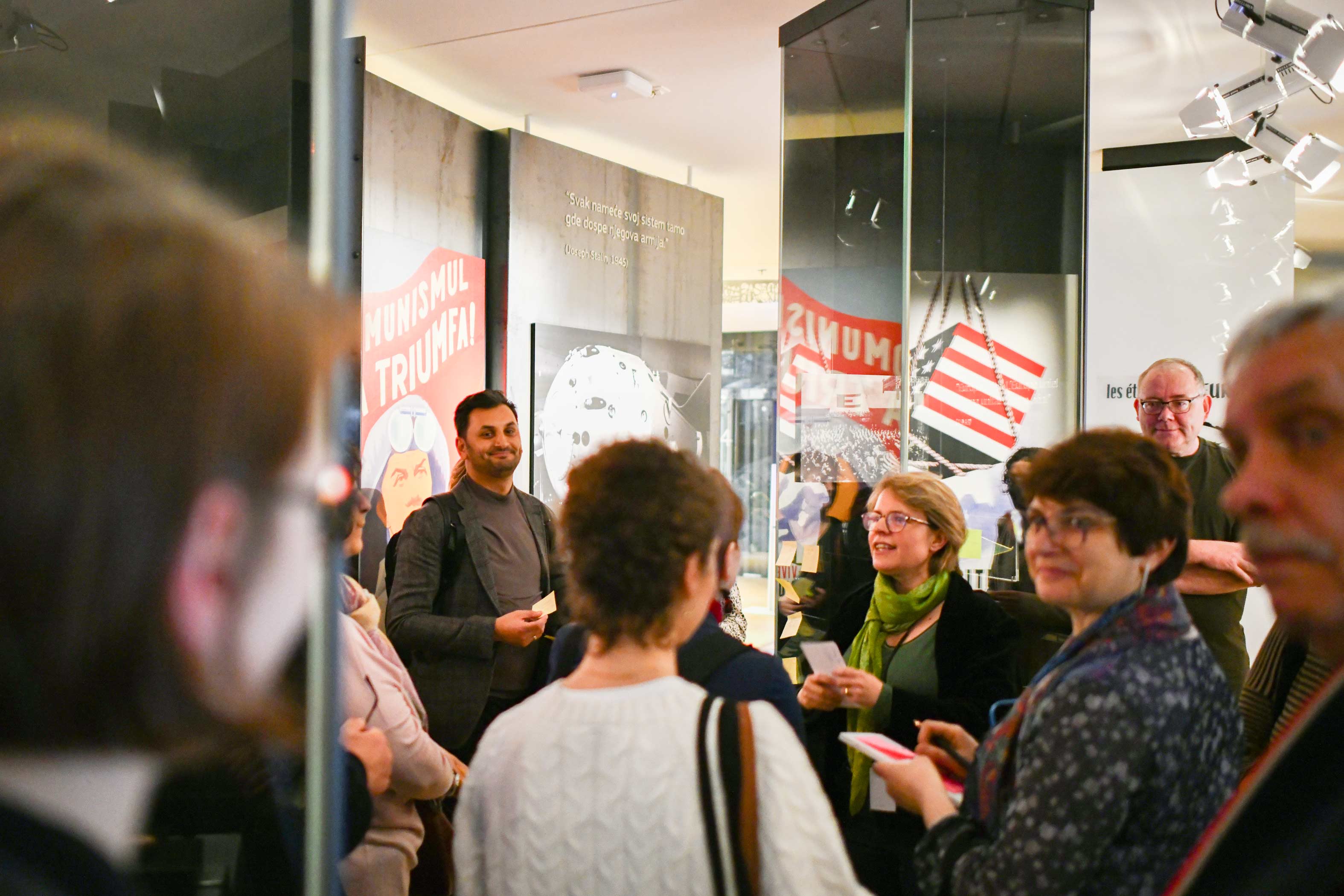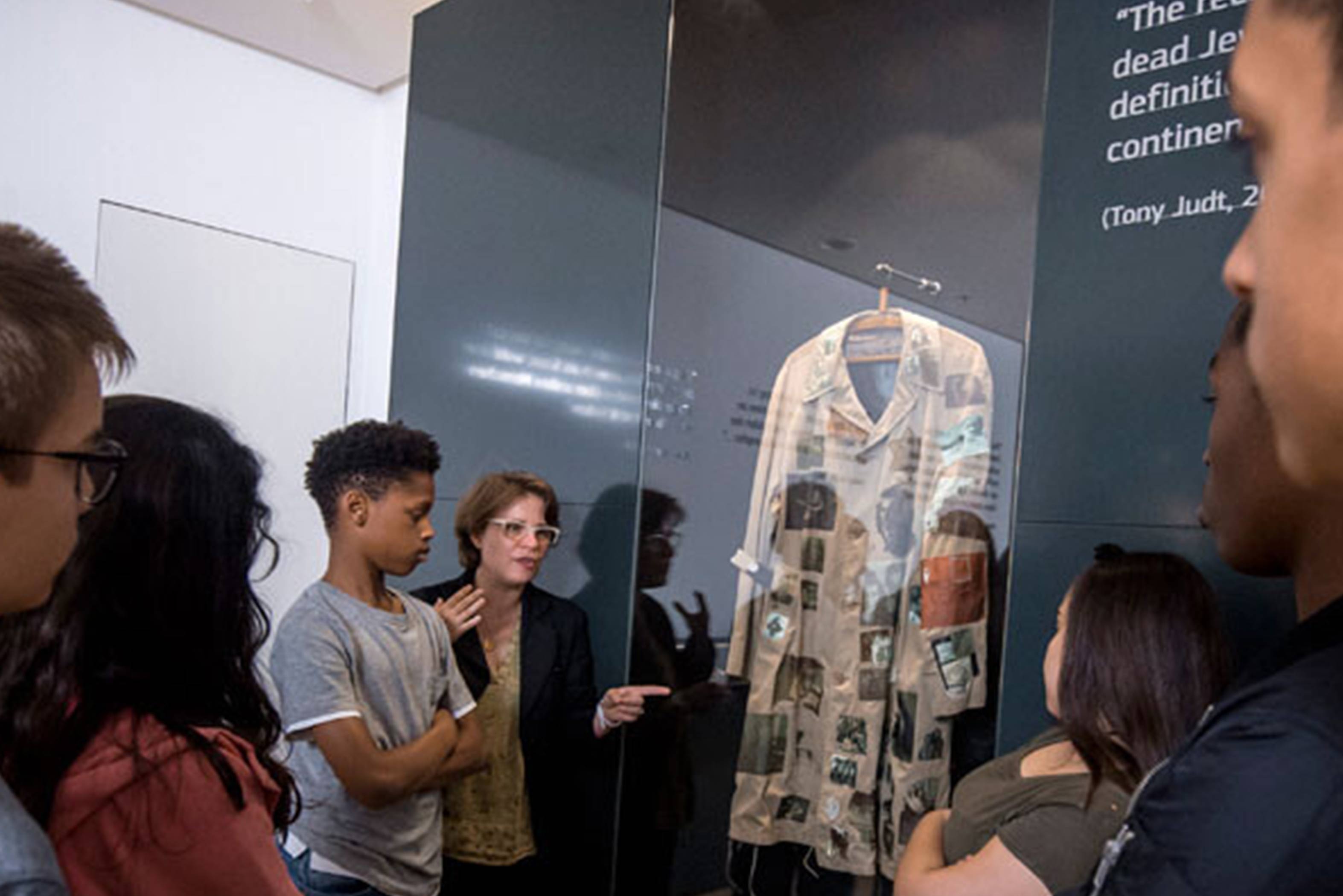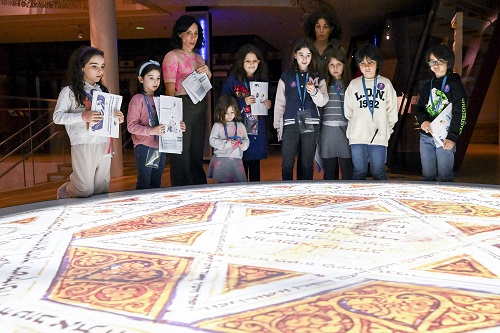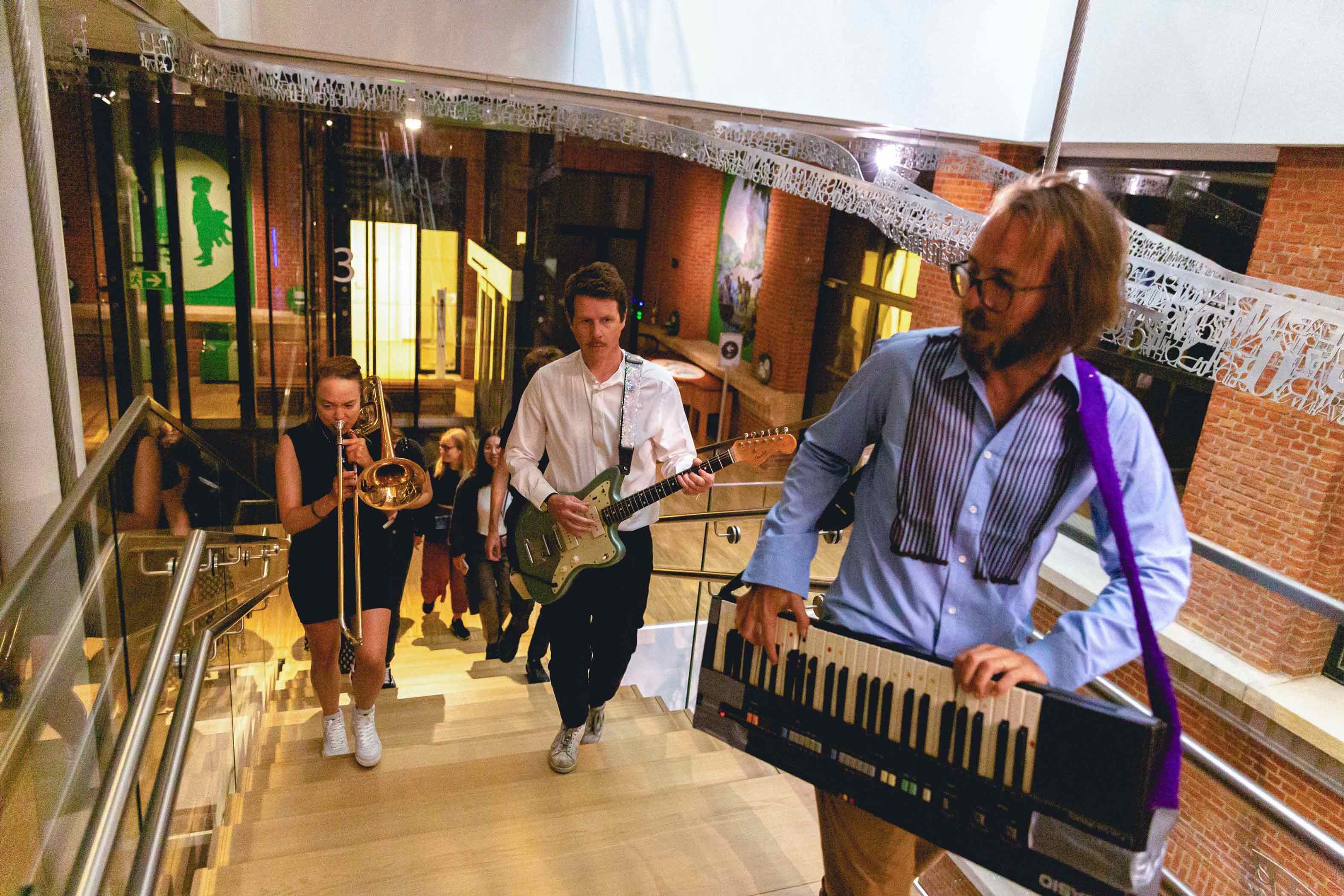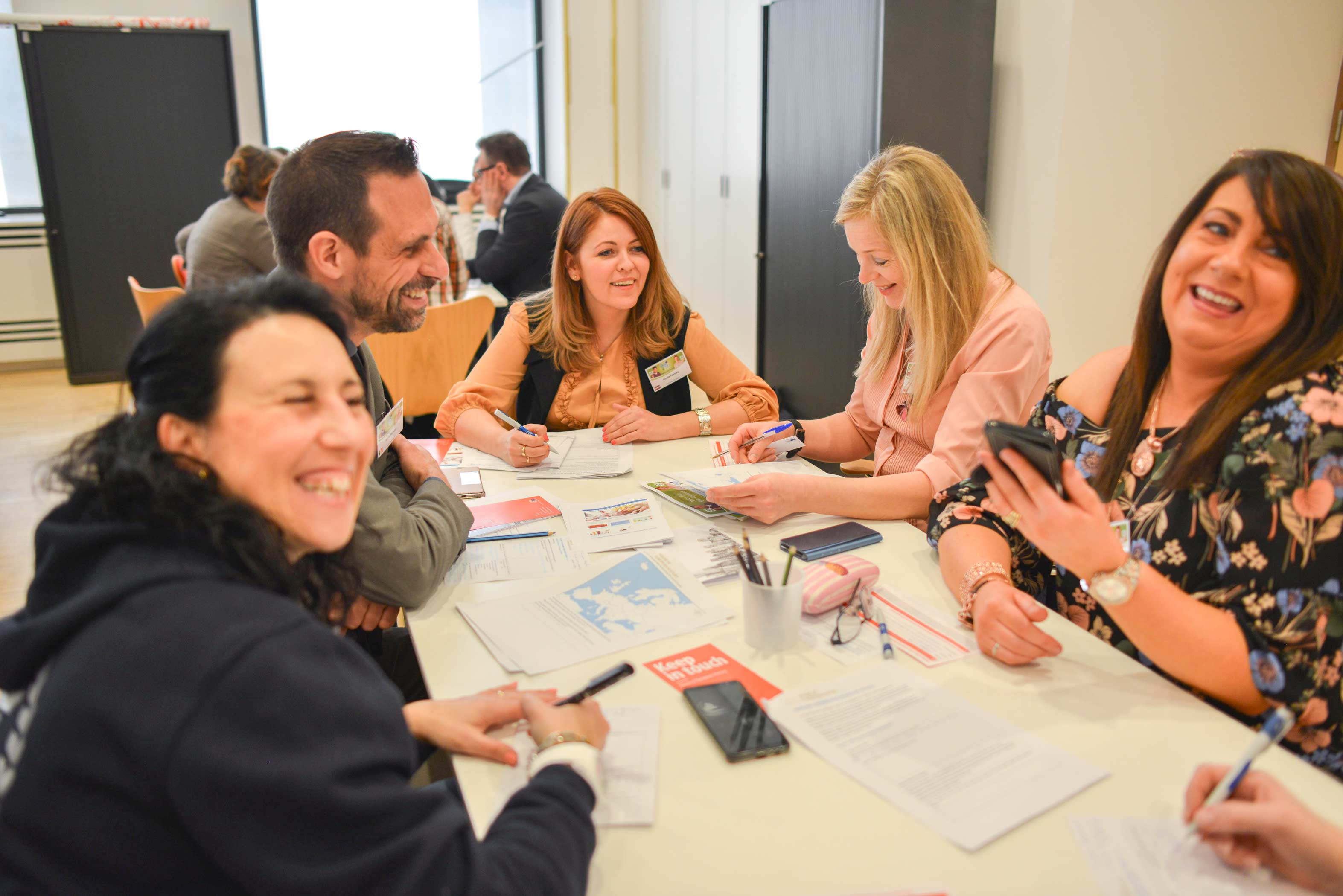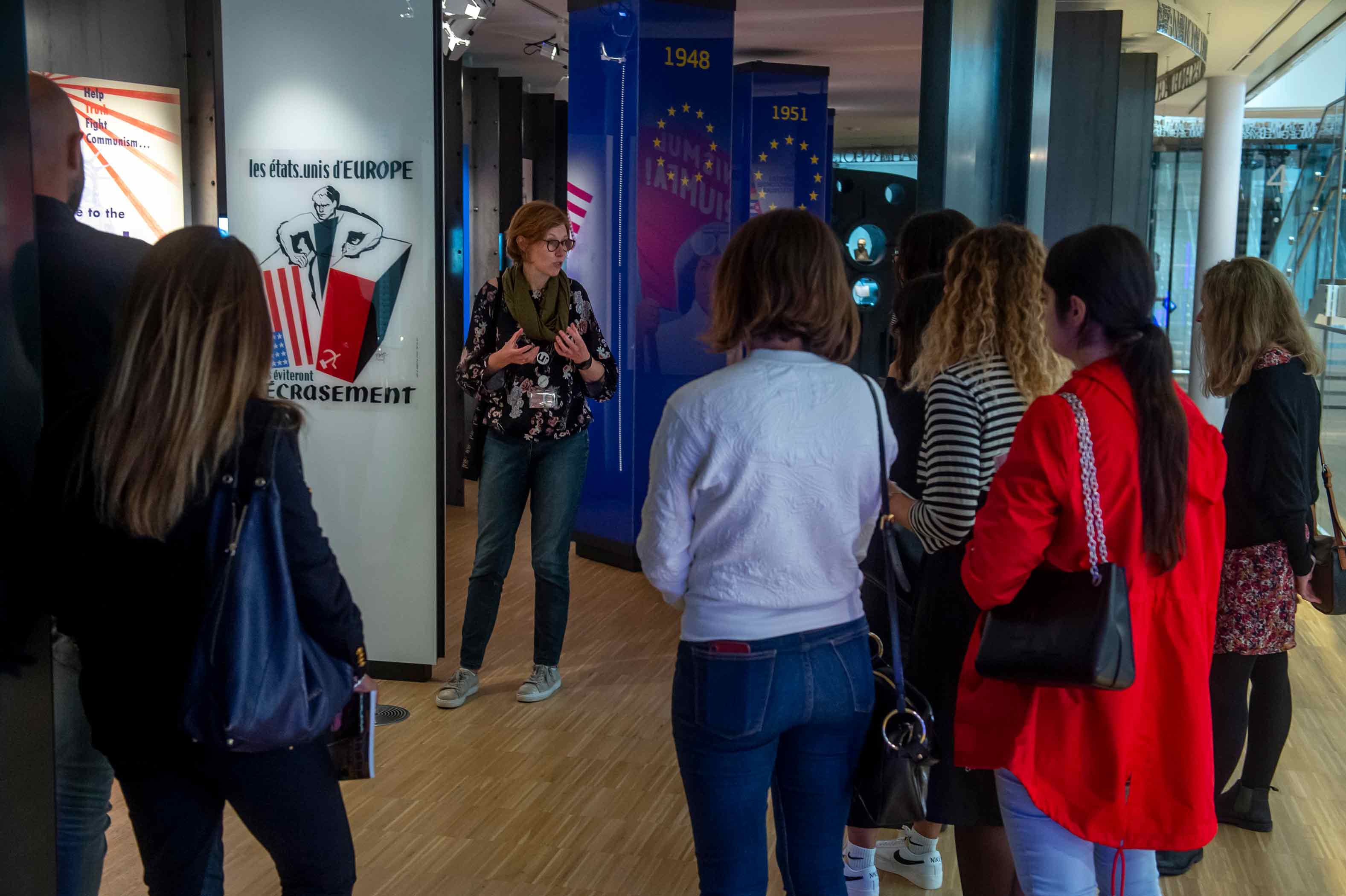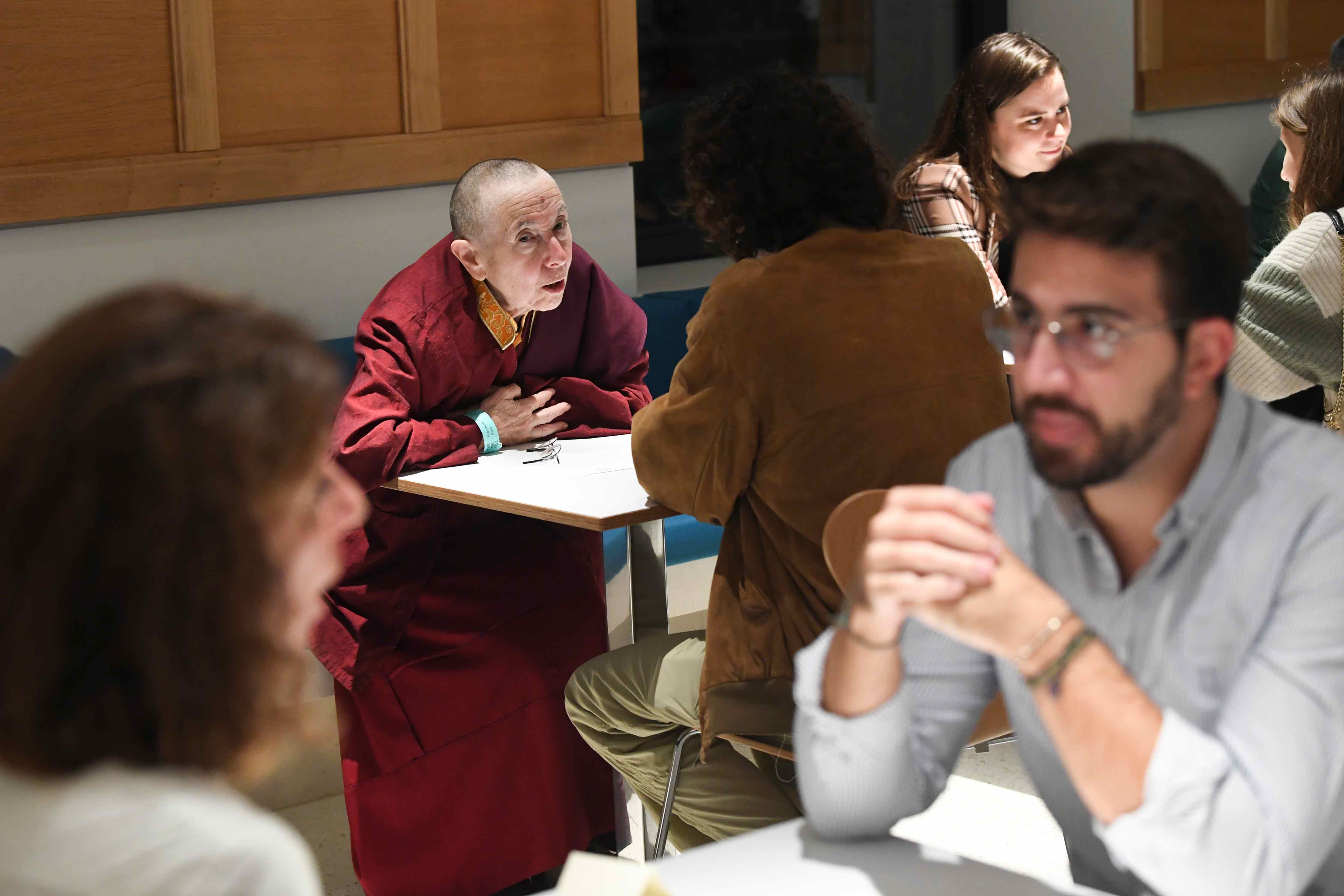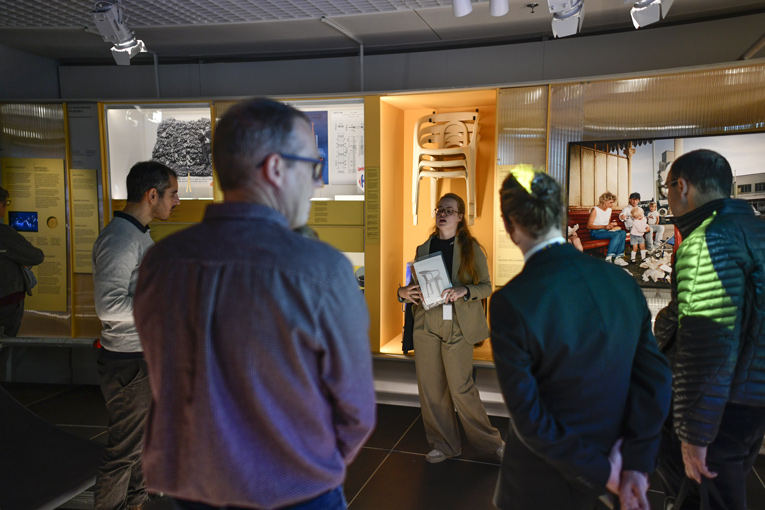Learn
The learning activities of the museum take a transnational viewpoint that explore the historical memories, diverse experiences and common ground of the peoples of Europe.
The House of European History develops public programmes, guided tours and learning materials for a general museum audience, as well as specialised audiences such as teachers and learning professionals in the cultural and educational sectors.
Our aim is to encourage visitors to have an open attitude of wonder, curiosity and inquiry. Together we critically reflect on social developments in the past and present around topics such as colonialism, the Holocaust, European integration, propaganda, and the many forms of racism and discrimination.
By exploring this together we learn new insights, and have more empathy and understanding for different perspectives around us.
